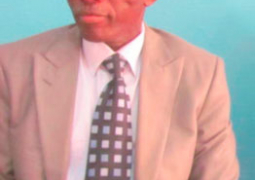Delivering a statement on behalf of Interior Minister Ousman Sonko, deputy permanent secretary technical of the Ministry of Health and Social welfare, Dawda Ceesay, said President Jammeh, recognizes health as a vital resource for socio-economic development.
“Effective tobacco control is beyond a single ministry, organization or institution, hence the timeliness and importance of launching this tobacco control initiative cannot be overemphasized,” PS Ceesay said.
According to him, The Gambia is doing a lot to fighting tobacco, noting that the Government of through the Ministry of Health and Social Welfare has taken giant steps in support of tobacco control.
He mentioned few of those steps such as legislating against public smoking through an enactment in 1998 which prohibits smoking in public places, as well as reduces demand on tobacco consumption.
He also said The Gambia has banned tobacco advertisement in the mass media through the 2003 Anti-Tobacco Advertisement Bill and more importantly, the National Assembly unreservedly ratified the WHO Framework Convention on Tobacco Control in June 2007, a move that buttresses The Gambia Government’s commitment to the global fight against tobacco.
According to PS Ceesay, what he learnt from the experts globally, tobacco epidemic kills six million people each year, of which more than 600,000 are non-smokers dying from breathing or inhaling second-hand smoke.
“Unless we act,” PS Ceesay went on, “the epidemic will kill more than eight million people every year by 2030, thus more than 80% of these preventable deaths will be among people living in low-and middle-income countries.”
He said recent research has suggested that smoking prevalence in the adolescent population aged 13 to 15 years is estimated at 24.5%, the majority, 28.1%, of which are boys and 31% prevalence rate among youth population aged 25 to 34 years.
An average Gambian adult male aged 25 to 64 years smoke about 10 sticks of cigarette a day and this is indicative of a very high level of cigarette consumption in the country.
He thanked the Ministry of Health for this laudable initiative, promising that his ministry through its security outfits will rally behind the Ministry of Health to enforce the law accordingly.
For his part, Momodou Gassama, Health Promotion Experts at WHO Gambia office, deputizing the WHO representative to The Gambia, Dr Thomas Sukwa, said the WHO lauded The Gambia for taking this bold step at a time when the global blueprint - WHO Framework Convention on Tobacco Control (WHO FCTC) - was being conceived by member states of the WHO.
Mr Gasama described The Gambia as a country in the direction of ensuring the public is protected from the health consequences of second-hand smoking.
“The FCTC clearly articulates the need for Member States to take the necessary legislative measures to protect their citizens from exposure to environmental tobacco smoke, and the enactment by the National Assembly of The Gambia on Prohibition of Smoking in Public Act in 1998 was timely,” he stated.
He also thanked the seven outstanding tobacco control veterans who were winners of the prestigious World No-Tobacco Day Award dating back to 2000, saying there is no country in the sub-region that has won such an award seven times apart from The Gambia.
He named those seven awardees as: St Therese’s Upper Basic School in 2000; former NAM for Sami, Edrissa Samba Sallah in 2001; RAID-Gambia in 2002; IOGT-in 2006; Latri-Kunda Upper Basic School in 2007; Foroyaa Newspaper in 2008, and Brufut Lower Basic School in 2012.
He also encouraged these award winners to keep up the momentum in their continued support and fight against tobacco usage in the country.
In attendance were the Minister of Health and Social Welfare, Omar Sey; and representatives of WHO/AFRO and Centre for Tobacco Control based in Kampala, Uganda, Williams Onzivu and Jeninnah Kabiswa.
Other speakers on the occasion wereJFPH CEO Kebba Manneh, and former NAM of Sami constituency, Hon. Edrissa Samba Sallah (author of the ACT), while Momodou Njie, director of Health Promotion and Education at the Ministry of Health and Social Welfare, chaired the ceremony.
Read Other Articles In Article (Archive)




